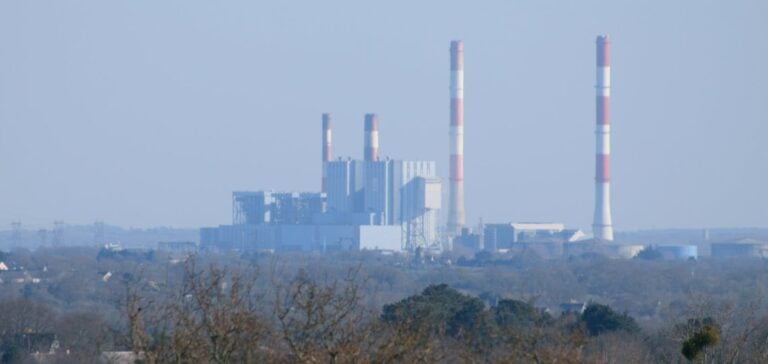The restart of the Cordemais thermal coal plant in Loire-Atlantique was blocked this week by its workers. Planned to meet an anticipated cold wave in France, the temporary restart was disrupted by a strike organized by employees. The site’s unions, including CGT, FO, and CFE-CGC, have declared their refusal to resume operations until concrete guarantees about the industrial future of the site are presented.
EDF, the operator of the plant and a company wholly owned by the French state, announced in late September the cancellation of the Ecocombust project. This initiative aimed to convert the plant to biomass to reduce greenhouse gas emissions by using wood waste pellets. However, EDF deemed the project economically unviable, setting the plant on course for permanent closure by 2027.
A Contested Industrial Transition
According to the unions, the industrial conversion proposals put forward by EDF fail to meet workers’ expectations. The company plans to transform the site into a manufacturing hub for nuclear plant pipes, in collaboration with its subsidiary Framatome. This project is expected to create only 100 to 200 jobs, significantly fewer than the current 500 positions, 340 of which are directly linked to plant operations.
In a statement, the unions affirmed that “not a gram of coal will be burned until further notice,” calling for “credible plans for the site’s industrial future.” They also criticized the lack of communication over the past two months, which pushed the workers’ assembly to unanimously vote against restarting operations.
A Tense Energy Context
The Cordemais plant is one of the last two remaining coal plants in France, alongside Saint-Avold in Moselle, operated by GazelEnergie. These facilities operate only occasionally to handle peak electricity demands. In 2023, Cordemais accounted for just 0.1% of French electricity production but remains crucial during high-demand periods.
President Emmanuel Macron had initially supported converting the plant to reconcile energy transition goals with preserving local employment. However, the decision to abandon Ecocombust has disrupted this balance, exacerbating tensions between EDF and its workers.
Limited Prospects
For the local community and officials, the issue extends beyond electricity production. The plant, which provides 500 direct and indirect jobs, is a cornerstone of the regional economy. While manufacturing nuclear components offers an alternative, it is perceived as insufficient to sustain the current industrial base.
EDF, for its part, insists that discussions with trade unions are ongoing. For now, however, dialogue remains stalled, and the future of Cordemais, along with its workforce, remains uncertain.






















